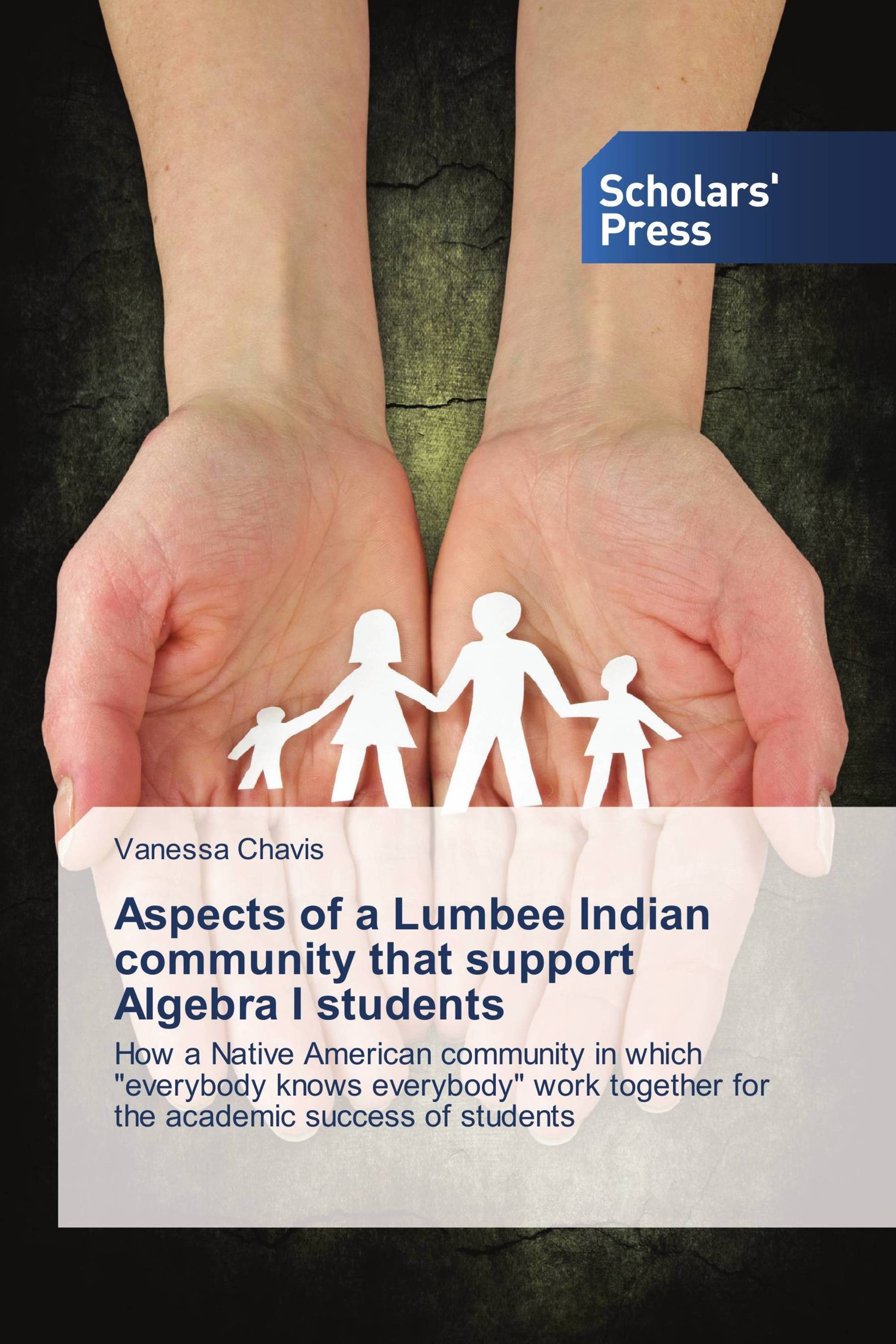Aspects of a Lumbee Indian community that support Algebra I students
How a Native American community in which "everybody knows everybody" work together for the academic success of students
International Research Press ( 20.02.2014 )
€ 75,90
The purpose of this qualitative research study was to examine the aspects of a stable, rural Lumbee Indian community in North Carolina that supports the algebraic achievement of high-achieving Lumbee Indian Algebra 1 middle school students. Students worked in groups to solve mathematics problems, and reflected on the problem-solving process. The data analysis performed involved data reduction, data display, and conclusion drawing/verification utilizing Cobb and Yackel’s (1996) social and sociomathematical norms framework in conjunction with Coleman’s (1988) social capital framework. The meanings that the community shares about teaching and learning of mathematics (based on the experiences, expectations, resources and goals of the community members)center around the common vision of ensuring that students receive the necessary support to aid in their academic success. Additionally, the historical sense of community and closure that is present in the community enables the development of trust because “everybody knows everybody”. Therefore, the social networking system within the community aids in the establishment of trust between the parents, teachers, and students.
Détails du livre: |
|
|
ISBN-13: |
978-3-639-70653-6 |
|
ISBN-10: |
3639706536 |
|
EAN: |
9783639706536 |
|
Langue du Livre: |
English |
|
de (auteur) : |
Vanessa Chavis |
|
Nombre de pages: |
292 |
|
Publié le: |
20.02.2014 |
|
Catégorie: |
Arithmétique, L'algèbre |



